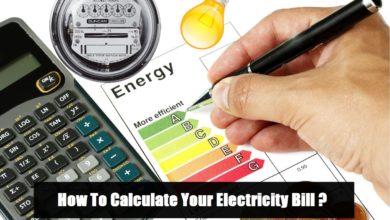Questions – Answers
Electrical and Electronics Engineering Interview Questions and Answers
-
Will a D.C Shunt Motor operate on an A.C Supply?
The Shunt winding has a large number of turns so that it has appreciable inductance. When A.C is applied to a shunt motor, the large inductive reactance of shunt winding…
Read More » -
What is the Difference Between Power Transformers and Distribution Transformers?
Main Difference between Power Transformer and Distribution Transformer The working principle of all transformers is the same i.e. electromagnetic induction whereas design, function, purpose of applications and winding configurations differentiate…
Read More » -
What is the Purpose of Ground Wire in Overhead Transmission Lines?
The Role of Earth Wire or Ground Wire in Overhead Power Lines Ground wire or earth wire (also known as OPGV) is a bare conductor supported at the top of…
Read More » -

How To Calculate Your Electricity Bill. Electric Bill Calculator with Examples
Calculate Your Electricity Bill in 1 Minute with a Simple Calculation or by Using an Electric Energy Bill Calculator Calculating electricity bills and tariffs is straightforward for electrical engineering students…
Read More » -
Why are Generators and Alternators Rated in kVA, Not in kW?
Why is an Alternator or Generator Rated in kVA, Not in kW? As we already know that why is a transformer rated in kVA instead of kW, same is the case…
Read More » -
Why Do We Need to Install a Starter with a Motor?
Why Do We Need to Connect a Starter with Electrical Motors? Essential and Need of Starter with Motor A starter is a device used in motors to start and accelerate.…
Read More » -
What is an Electrical Transformer? Construction, Working, Types and Applications
What is a Transformer? Its Parts, Operation, Types, Limitation & Application What is a Transformer? As the name suggests, an Electrical Transformer transfers electrical power from one electrical circuit to…
Read More »





